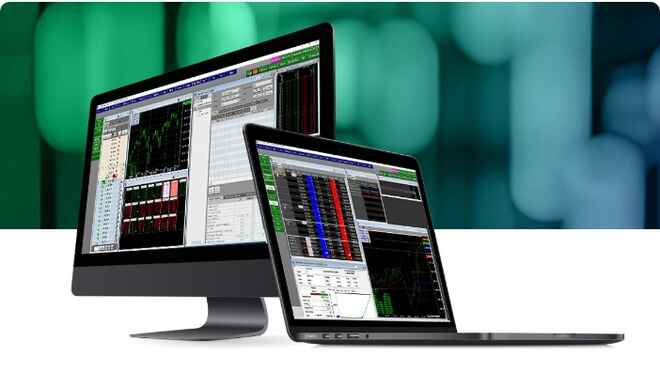- Arbitrage: The simultaneous purchase and sale of similar commodities in different markets to profit from price discrepancies
- Associated Person: AP Participants within the futures market who are involved in the solicitation or facilitation of transacting customer orders, maintaining discretionary accounts, or true participation in the futures market.
- Broker: A firm or individual that executes futures and options orders on behalf of other parties.
- Commission: A fee charged by a broker to a customer for executing a transaction. Also referred to as brokerage fee.
- Commodity Futures Trading Commission: CFTC The federal regulatory agency established in 1974 that administers the Commodity Exchange Act. The CFTC monitors the futures and options on futures markets in the United States. The commission is independent of all cabinet departments, and comprises five commissioners who were appointed by the President and subject to Senate confirmation.
- Commodity Pool: An enterprise in which funds contributed by a number of persons are combined for the purpose of trading futures or options contracts.
- Commodity Pool Operator: CPO An individual or organization that operates or solicits funds for a commodity pool. CPOs are generally required to be registered with the CFTC.
- Commodity Trading Advisor: CTA A person who advises others as to the value of or advisability of buying or selling futures contracts or options or trades on the customer’s behalf. A CTA trades other people’s money, and generally must be registered with the CFTC. Learn more about CTAs here.
- Counter Trend Strategy: A trading strategy that attempts to profit by small gains through a series of trades against the current market trend. Many counter-trend trading strategies utilize momentum indicators when determining trading opportunities.
- Customer Margin: Funds required of both buyers and sellers of futures contracts and sellers of options contracts to ensure fulfillment of contract obligations.
- Disclosure Document: A statement that must be provided by a Commodity Trading Advisor or Commodity Pool Operator to prospective customers describing trading strategy, fees, performance, etc.
- Discretionary Account: An account over which any individual or organization, other than the person in whose name the account is carried, exercises trading authority or control. Also referred to as a controlled or managed account.
- Drawdown: An investment is said to be in a drawdown when its price falls below its last peak. The drawdown percentage drop in the price of an investment from its last peak price. The period between the peak level and the trough is called the length of the drawdown period between the trough and the recapturing of the peak is called the recovery.
- Emerging CTA: An emerging CTA is one whose track record is less than five years and has less than $100 million dollars in assets under management.
- Established CTA: An established CTA is one whose track record exceeds five years in duration and has more than $100 million dollars in assets under management.
- Forex Futures: Forex or FX A shortened term for foreign exchange futures, also known as FX or currency futures. Forex futures are exchange-traded contracts to buy or sell a specified amount of a currency on a set future date, at a specified price.
- Forex Market: An over-the-counter market where buyers and sellers conduct foreign exchange business by telephone and other means of communication. Also referred to as foreign exchange market.
- Fundamental Analysis: A method of anticipating future price movement using supply and demand information.
- Futures: Standardized contracts covering the sale of commodities for future delivery on a futures exchange.
- Futures Commission Merchant: FCM An individual or organization that solicits or accepts orders to buy or sell futures contracts or commodity options, and accepts money or other assets from customers in connection with such orders. An FCM must be registered with the CFTC.
- Futures Contract: A legally binding agreement to buy or sell a commodity or financial instrument at a later date. Futures contracts are standardized according to the quality, quantity, and delivery time and location for each commodity.
- Give Up: An order that, at the request of the customer, is credited to a brokerage house that has not performed the execution service.
- Global Macro Strategy: Commodity Trading Advisors that utilize a global macro approach to managing assets primarily focus on the overall economic and political views of various countries, along with other macroeconomic principles to determine trading opportunities.
- Hedging: The practice of offsetting the price risk inherent in any cash market position by taking an equal but opposite position in the futures market. Get information on hedging here.
- Initial Margin: The amount a futures market participant must deposit into a margin account at the time an order is placed to buy or sell a futures contract. Also called Initial Performance Bond. See Margin.
- Introducing Broker: IB Firm or an individual that solicits and accepts futures orders from customers but does not accept money, securities, or property from the customer. An IB must be registered with the CFTC.
- Intermediate Holding Period: A time period for holding trades three months to a year in duration until liquidation.
- Intermediate-term Time Horizon: An intermediate investment time horizon is a period of three to ten years.
- Long-term Time Horizon: A long term investment time horizon is a period longer than 10 years.
- Long-term Holding Period: A time period for holding trades a year or more in duration until liquidation.
- Maintenance Margin: A sum usually smaller than, but part of, the original margin (security deposit) that must be maintained on deposit at all times. If your account falls below the maintenance margin requirement, you will receive a margin call. If you wish to continue to hold the position, you will be required to restore your account to the full initial margin level (not to the maintenance margin level). See Margin.
- Managed Account: See Discretionary Account.
- Managed Futures: Represents an asset class composed of commodity trading advisors who manage client assets on a discretionary basis, using global futures markets as an investment medium. Learn about Managed Futures.
- Margin: A cash amount of funds that a customer must deposit with the broker for each contract as a sign of his good faith in fulfilling the contract terms.
- Margin Call: A call from a broker or firm to a customer, to bring margin deposits up to a required minimum level. Exchange rules state that margin calls must be satisfied by bringing your account equity back to the Initial Margin level. Failure to meet a margin call immediately may result in some or all of the trader’s positions being liquidated by the firm without prior notification.
- Naked Option: See Uncovered Option.
- National Futures Association: NFA Authorized by Congress in 1974 and designated by the CFTC in 1982 as a “registered futures association,” NFA is the industrywide self-regulatory organization of the futures industry. The primary responsibilities of the NFA are to enforce ethical standards and customer protection rules, screen futures professionals for membership, audit and monitor professionals for financial and general compliance rules, and provide for arbitration of futures-related disputes.
- Open Outcry: A method of public auction for making bids and offers in the trading pits of futures exchanges.
- Option Seller: The person who sells an option in return for a premium, and is obligated to perform when the holder exercises his right under the option contract. Also referred to as the writer.
- Pool: See Commodity Pool.
- Round Turn (R/T) per Million: Represents the number of trades (in and out) that a CTA program trades on an annual basis, based on a $1 million account.
- Short-term Holding Period: A time period for holding trades seconds to a three month duration until liquidation.
- Short-term Time Horizon: A short term investment time horizon is a period of less than 3 years.
- Systematic: Commodity Trading Advisors that trade using a systematic approach define trade goals, risk controls, and rules to find and execute trades in a methodical fashion. Many systematic CTAs employ computer models based primarily on technical analysis of market data or fundamental economic data, with minimal manager intervention.
- Technical Analysis: An approach to analysis of futures markets that examines patterns of price change, rates of change, and changes in volume of trading, open interest and other statistical indicators.
- Total Return: The total percentage return of an investment over a specified period, calculated by expressing the difference between the investment’s initial price and final price as a percentage of the initial price.
- Trend: The general direction, either upward or downward, in which prices have been moving.
- Uncovered Option: A short call or put option position that is not covered by the purchase or sale of the underlying futures contract or physical commodity. Also referred to as a Naked Option.
- Volatility: A measurement of the change in price over a given time period.
- Volume: The number of transactions in a futures or options on futures contract made during a specified period of time.
RJO Premier
Full-service trading account with 24-hour access and tailored strategies.

